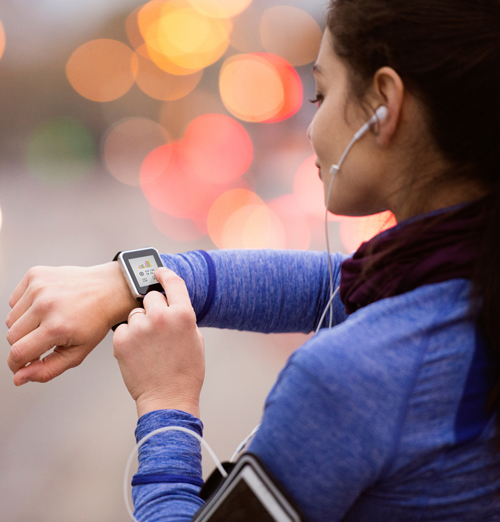By Anja Springthorpe
More than 100,000 health applications are available on iTunes and Google Play. Some are free, some require purchase, but all claim to improve the users’ wellness, health or fitness. But do these claims stack up?
A study exploring whether or not health apps are effective scrutinized a number of apps from the most popular health category – diet and weight loss. More than 80 percent of these did not include strategies to support realistic weight loss. The study concluded that the majority of mobile apps are not sufficient weight-loss tools; however, in combination with behavioral change and exercise, apps may be helpful.

Our phones are always at our fingertips, making apps a convenient way to track, log or evaluate activity levels and calorie consumption. Pedometer apps, for example, are an easy way to monitor if we reach our goal of 10,000 steps per day. 10,000 steps per day improves both cardiovascular health and weight loss. According to surveys, there is evidence that these specific step-tracking apps motivate people to get up and get moving.
There are other health apps designed to monitor, schedule and remind you to take medications, fill prescriptions, get vaccinated or attend upcoming visits with your physician. Depending on how organized you are, apps can help keep your well-being needs on track. Apps may be particularly useful if you manage the health requirements of kids or other family members.
Be cautious with apps that claim to diagnose or treat medical conditions. Health app developers are not required by law to engage medical professionals when designing software. This may result in unreliable diagnostic criteria. According to research from the University of Massachusetts Medical School, apps designed to detect skin cancer missed around 30% of melanomas.
So, do health apps work? Yes and no. Simple tasks like tracking, scheduling, reminding or logging can successfully be done via apps. Tracking apps, in combination with a healthy, active lifestyle, certainly support well-being and overall health. However, more complex health issues, such as weight loss or the management of medical conditions, should not be left to apps without the guidance of health care professionals.
Step-tracking apps motivate people to get up and get moving.




